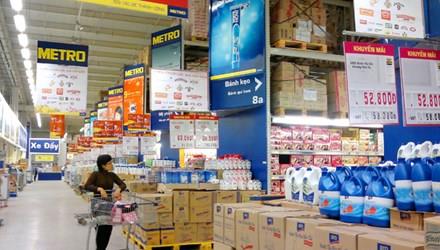

Pham Chi Lan, a renowned economist, expressed her concern about the overly high investment incentives the government offers to foreign-invested retail chains, warning that investment incentives, plus foreign groups’ powerful financial capability, would block Vietnamese retailers in the home market.
The Thai player, after taking over Metro, will be a formidable rival in Vietnam with two large distribution networks of supermarkets and convenience stores. It now has over 140 convenience stores in Vietnam.
An analyst, agreeing with Lan, noted that “the Vietnamese distribution network is being attacked in both the modern distribution channels (supermarkets) and traditional distribution channels (retail shops and traditional markets)”.
According to the analyst, Thai retail groups, like other foreign distributors, have been following a business strategy under which they establish both supermarkets and small retail shops in Vietnam.
Meanwhile, it is very difficult for Vietnamese manufacturers and suppliers to have their products displayed at big supermarket chains like Big C and Metro, because the chains always require very high discount rates.
What will happen to local shops? The analyst said that foreign distributors will step by step increase the percentage of foreign-made products sold at their supermarket chains.
Responding to the warnings given by the economists, an official of MOIT noted that the the problem has been “exaggerated” and that there is no need to worry too much about the presence of foreign retail groups in Vietnam.
The official said that 70 percent of the products available at big supermarket chains are Vietnamese-made products.
Foreign distributors have to fulfill the commitments on the percentage of Vietnamese goods to be distributed through their distribution network. This means that market control is within the Vietnamese agencies’ reach, the official said.
Although Unilever and Procter & Gamble, which dominate the detergent market, are foreign-invested enterprises, their products are considered “Vietnamese” because the products are made in Vietnam.